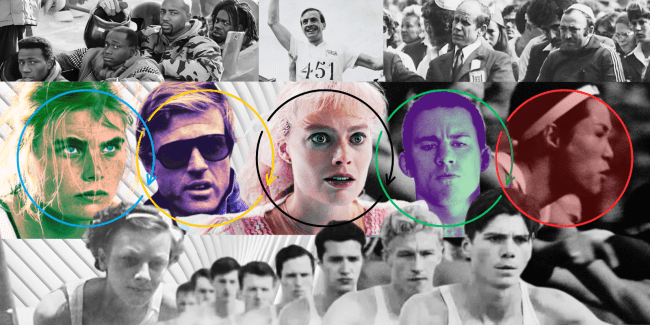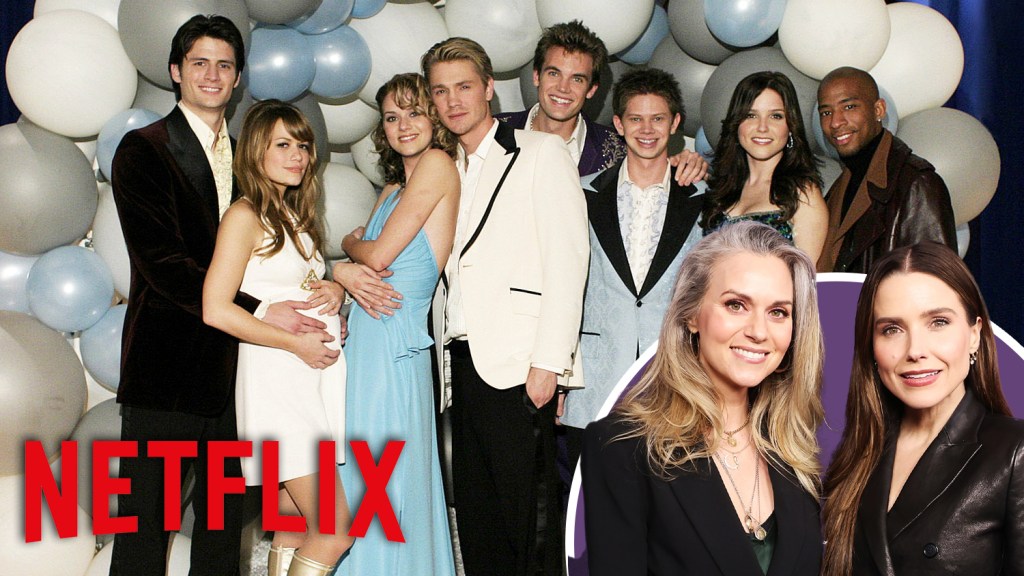11 Inspiring Olympic Films That Will Ignite Your Passion

From the pinnacle of athletic achievement to the depths of human struggle, the Olympic Games have always captivated audiences. While the official International Olympic Committee documentaries have largely faded from view, independent films continue to explore the fascinating stories behind these iconic events.
The Olympics attract filmmakers for good reason. They showcase the world's most talented athletes at their peak, offering compelling subjects for the camera. But more than just physical prowess, these athletes possess an indomitable spirit and a drive for excellence that resonates with viewers. The stakes are high, representing their nations on the global stage, creating powerful narratives and captivating characters. Not to mention the sheer spectacle of the Opening and Closing ceremonies.
While documentaries capture the essence of Olympic events, narrative features offer alternative perspectives. Some films, like George Clooney's "The Boys in the Boat," are directly inspired by real events, while others, like Michael Ritchie's "Downhill Racer," delve into fictionalized stories of Olympic competition.
To celebrate the enduring power of the Olympic Games, IndieWire presents a chronological selection of the 11 best Olympic films of all time, featuring both documentaries and narrative features:
"Olympia" (dir. Leni Riefenstahl, 1938)
Before "Olympia," sports on film were merely records of competition. But Riefenstahl's masterpiece, while tarnished by its connection to Nazi propaganda, established a cinematic template for capturing the spectacle of the Games. Filmed at the 1936 Berlin Olympics, she used multiple cameras, including aerial shots from balloons, to capture the event in a dynamic and kinetic manner.
While Riefenstahl's intent was to glorify the Nazi regime, her cinematic vision revolutionized sports filmmaking. Her use of voiceover narration, reaction shots, and editing techniques are still employed in sports broadcasting today. Notably, she also captured the undeniable talent of Black American athlete Jesse Owens, a testament to his greatness despite the propaganda machine surrounding him.
"Tokyo Olympiad" (dir. Kon Ichikawa, 1965)
Commissioned by the Japanese government to showcase the 1964 Tokyo Olympics, "Tokyo Olympiad" was initially intended to be a straightforward documentary. However, director Kon Ichikawa presented a breathtakingly cinematic experience, employing widescreen cinematography, slow motion, and innovative techniques to capture the Games' beauty and human spirit.
The original 165-minute film was later replaced by a 93-minute version mandated by the government, but the original's lyrical and poetic approach to the Games remains a cinematic triumph.
"Downhill Racer" (dir. Michael Ritchie, 1969)
Robert Redford portrays David Chappellet, a downhill skier who embodies existential loneliness in his relentless pursuit of Olympic glory. Ritchie captures Chappellet's stoicism and emotional detachment, creating a portrait of a character driven by an almost narcissistic desire for victory. The film avoids glorifying his personality, culminating in a cynical ending that leaves no room for tragedy or regret.
"Chariots of Fire" (dir. Hugh Hudson, 1981)
"Chariots of Fire" tells the story of two Cambridge sprinters competing at the 1924 Paris Olympics, presented through a unique and experimental lens. Its silences, its deliberate omission of key moments, and its focus on the athletes' internal struggles create a film that feels almost avant-garde.
The film's iconic electronic score by Vangelis adds an ethereal layer to the narrative, contributing to its distinct atmosphere. Despite its critical reception, "Chariots of Fire" stands as a bold and innovative exploration of the Olympic experience.
"Personal Best" (dir. Robert Towne, 1982)
Set against the backdrop of the 1980 Moscow Olympics boycott, "Personal Best" explores the impact of the international controversy on the lives of athletes. Mariel Hemingway plays Chris, a track-and-field runner who navigates her love for her sport and her relationship with her teammate, played by real-life athlete Patrice Donnelly.
The film delicately handles Chris' bisexuality, offering a nuanced and intimate exploration of the struggles athletes face both on and off the track.
"Cool Runnings" (dir. Jon Turteltaub, 1993)
This inspiring and feel-good film, based on the real-life story of the Jamaican bobsled team at the 1988 Calgary Olympics, showcases the power of determination and teamwork. The film features a diverse cast of Black actors, overcoming both personal challenges and societal barriers to compete on the world stage.
"Cool Runnings" celebrates the spirit of the Olympics and its ability to bring people from different cultures together, while also tackling issues of racism and prejudice faced by the athletes.
"One Day in September" (dir. Kevin Macdonald, 1999)
This powerful documentary delves into the horrific 1972 Munich Olympics massacre, where 11 Israeli athletes were killed by Palestinian terrorists. Macdonald uses archival footage and interviews with survivors and the victims' families to paint a harrowing picture of the event.
The film highlights the incompetence of the German government in responding to the attack, providing a stark reminder of the dangers that can lurk beneath the surface of international sporting events.
"Foxcatcher" (dir. Bennett Miller, 2013)
This chilling and dark film examines the psychological toll of Olympic competition and the lengths to which individuals will go for greatness. Channing Tatum and Mark Ruffalo play brothers whose rivalry intensifies after joining a team funded by multimillionaire John Eleuthère du Pont (Steve Carell).
Du Pont's obsessive behaviour and the brothers' struggles create a haunting and unsettling portrait of the destructive nature of ambition and the human cost of chasing victory.
"I, Tonya" (dir. Craig Gillespie, 2017)
Margot Robbie delivers a captivating performance as Tonya Harding, the figure skater whose life became a tabloid sensation after her husband's involvement in an attack on her rival, Nancy Kerrigan. The film examines the complex and tragic circumstances that led to Harding's downfall, highlighting the pressures she faced as a young, talented athlete.
"I, Tonya" provides a compelling and nuanced look at the darker side of athletic ambition and the struggles of an individual caught in a whirlwind of media attention and personal turmoil.
"Olympic Dreams" (dir. Jeremy Teicher, 2019)
The first narrative film to be filmed inside the Olympic Village, "Olympic Dreams" offers a unique and intimate perspective on the athletes' experience. It follows a dentist who volunteers his services at the 2018 Pyeongchang Games, connecting with a cross-country skier who struggles with loneliness and mental health challenges.
The film offers a raw and honest portrayal of the psychological toll the Olympics can take on athletes, highlighting the human side of these international events.
"The Boys in the Boat" (dir. George Clooney, 2023)
This rousing and inspiring film tells the true story of the 1936 University of Washington rowing team, who competed for gold at the Berlin Olympics. Clooney captures the team's camaraderie, determination, and their quest to overcome adversity.
While undoubtedly a feel-good film, "The Boys in the Boat" showcases the power of teamwork, the pursuit of excellence, and the importance of believing in yourself, offering a timeless message of resilience and triumph.
These films showcase the Olympic Games in all their complexity and humanity, providing inspiring stories, breathtaking moments, and unforgettable characters. They remind us of the power of sport, the tenacity of the human spirit, and the enduring legacy of the Olympic Games.





